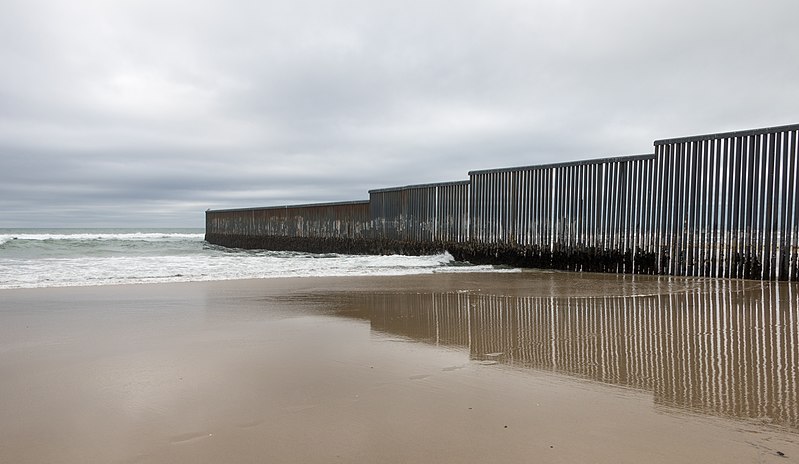
Not much goes on without the US president tweeting about it, yet when Mexico was struck by an 8.2 earthquake that took more than 90 lives, days went by without any acknowledgement from Donald Trump. During those few days, Mexico endured yet another natural disaster as Hurricane Katia barreled through the region. Still, there was no mention of the events in any of the President’s tweets or public statements. Finally, three days after Mexico rescinded its offer of aid to help Texas recover from Hurricane Harvey, Donald Trump tweeted that he had been unable to reach the Mexican President Enrique Peña Nieto because of poor reception. This exchange had received significant attention due to its effects on US-Mexico relations, which are already under immense pressure due to the ongoing debates regarding immigration reform and the status of the North Atlantic Free Trade Agreement (NAFTA).
President Trump was quick to call Nieto and offer aid, as well as tweet out his support when Mexico City was hit by 7.1 tremors as a result of the previous earthquake. This may have been a genuine attempt to compensate for his earlier inattention, but it has done little to balance the flow of statements regarding the “America first” policies he’s been pushing for. The end of DACA, the potential end to NAFTA, and the construction of a border wall are all policy changes that Mexico is strongly and openly opposed to, yet Trump has used Twitter to re-emphasize his commitment to all of these issues in the last month, even in the wake of Mexico’s display of neighborly congeniality. Trump’s habit of using Twitter as the main platform for communicating his opinions has made the contents of his tweets immensely important because they convey his political attitude. Of course, the United States’ relationship with Mexico does not rest on a single tweet, but the lack of public attention paid to our neighbor’s devastation implies apathy – an attitude that is poisonous to diplomatic affairs.
In this latest episode, the tweet that broke Trump’s silence on the matter read: “The message fails to explain why it took an additional four days to tweet about said phone call while Trump never waits long to tweet about other exchanges or opinions. Bad cell phone reception might have been a viable excuse if President Nieto had been vacationing on a remote island, but in the days following the earthquake, Nieto spent most of his time in Mexico City and only flew to Oaxaca and Chiapas in the afternoon to observe the destruction. The excuse was met with plenty of disdain as critics tweeted things such as “The US president: a man who blames bad phone signal for his lack of empathy with a neighboring country that has suffered a tragedy. SAD!” and “The US president: a man who is so resourceless that a bad cell phone signal renders him unable to communicate. WEAK!” Not only do these messages mock the language of Trump’s own tweets, but they also reveal how the President’s response has served to further damage his global image.
Spoke to President of Mexico to give condolences on terrible earthquake. Unable to reach for 3 days b/c of his cell phone reception at site.
— TheRealDonaldTrump (@RealDonad_Trump) September 14, 2017
Trump’s response to the natural disasters in Mexico is only the most recent example of how his unfiltered tweeting habits have negatively impacted US-Mexico relations. Tension first began to rise during Trump’s 2016 presidential campaign, during which he posted a number of tweets referring to Mexico as “our enemies” and “corrupt.” These sentiments manifested into his presidential policies, beginning with an executive order that commissioned the border wall. Trump continues to tweet provocative messages, claiming that “the wall” is already under construction and insisting that Mexico will cover the costs, while Nieto persistently states that even if the wall is built, his country will have nothing to do with it. More recently, he announced his intention to end the Obama-era DACA program (Deferred Action for Childhood Arrivals) which would legalize the deportation of thousands of Latinx youth living in the United States. This announcement came within a week of Mexico’s aid offer and was met with vocal opposition from President Nieto himself, who tweeted “México lamenta profundamente la cancelación del Programa de Acción Diferida para los Llegados en la Infancia #DACA” or “Mexico profoundly regrets the cancellation of the Deferred Action for Childhood Arrivals program.” Thus, destabilizing the DACA program has added another issue to the growing list of disputes between Mexico and the US.
México lamenta profundamente la cancelación del Programa de Acción Diferida para los Llegados en la Infancia #DACA. — Enrique Peña Nieto (@EPN) September 5, 2017
Trump’s steadfast commitment to his ideology endangers the strong economic relationship that Mexico and the US share. Mexico is the US’ second largest export market and third largest trade partner. Additionally, Mexico is the seventh fastest growing investor for the United States, with current investment standing at roughly $17.6 billion. In addition to being extremely economically interconnected, the United States and Mexico work together on a number of transnational issues, including organized crime, infectious diseases and climate change. Donald Trump’s aggressive approach to handling US-Mexico relations puts all of this at risk, and America has already begun to see results. Mexico has started looking elsewhere to form strong trade relationships by focusing on the Pacific Alliance, a trade block involving Mexico, Chile, Colombia, and Peru, and the Trans-Pacific Partnership, a trade agreement between Chile, Peru, and Mexico that Trump withdrew from in January 2017. Mexico is also opening conversations with the EU, China and Latin American countries, some of which export the primary products that Mexico currently purchases from the United State.
In many ways, the repercussions of his tweets go beyond Trump’s personal reputation. With important issues such as immigration and trade policy reform now in question, pushing for cooperation and positive relations with Mexico is increasingly more prevalent. As a result, small actions like offering condolences take on more importance. Trump must begin to use Twitter more carefully as a diplomatic tool rather than simply using it as a platform for promoting his own agenda.
The views expressed by the author do not necessarily reflect those of the Glimpse from the Globe staff, editors or governors.









